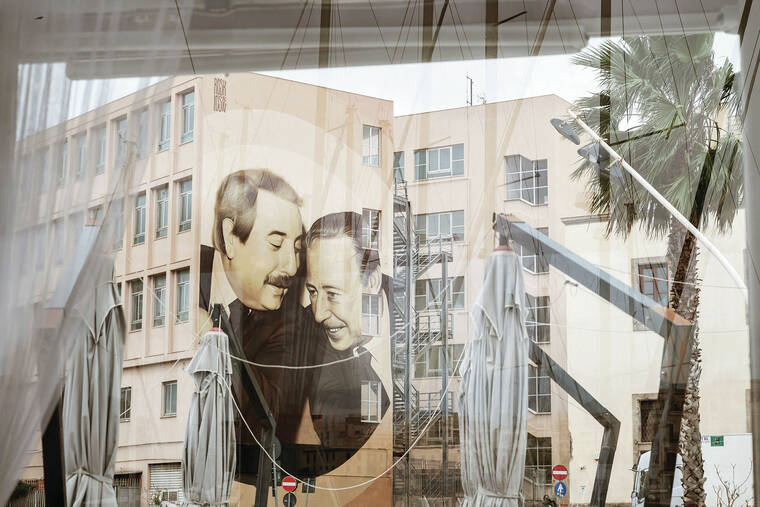Fugitive’s arrest like a ‘quake,’ but Mafia very resilient
ROME — Matteo Messina Denaro’s long record as a killer — turncoat mobsters said he’d boast of enough murders to fill a cemetery — greatly burnished his credentials among his peers as a major boss in the Sicilian Mafia.
After 30 years eluding capture while still running much of the Mafia’s affairs, he was arrested Monday at a Palermo clinic, where the convicted mobster was receiving chemotherapy. But while he was hustled off early Tuesday to a maximum-security prison on the Italian mainland, his capture is hardly expect to bring the demise of the Cosa Nostra, thanks to the syndicate’s more than century-old roots and rules.
ADVERTISING
“What will happen in detail, we can’t know,” Palermo Prosecutor General Lia Sava, said on Rai state radio about the future of the Mafia.
“But one thing is sure. Cosa Nostra is made up of rules. It has supported itself on these rules for 150 years, so certainly it will put into motion those rules to repair the damage, and thus create the new leadership structure needed after the arrest,” Sava said.
While Messina Denaro wielded great influence in the Mafia, for decades Cosa Nostra has lacked a supreme capo, investigators say.
The practically mythical figure of a “boss of bosses” ended in 1993, with the arrest in a Palermo hideout of Salvatore ”Toto” Riina, who had been Italy’s top fugitive for 23 years.
According to trial testimony that led to his conviction for many murders, including the 1992 bombings that killed Italy’s top two anti-Mafia magistrates, Riina was in charge of Cosa Nostra’s “commission” that ran illicit businesses and devised a strategy of deadly retaliation against the state for its crackdown on the mob.
“After Riina there was never an absolute boss,” said Rome Chief Prosecutor Francesco Lo Voi, who took up his post last year after serving as Palermo chief prosecutor, helping coordinate the hunt for Messina Denaro.
Even if the “capo di capi” figure still existed, Messina Denaro wouldn’t have qualified because he came from Castelvetrano on Sicily’s western edge, not from Palermo or its surrounding countryside, Lo Voi noted, citing Cosa Nostra’s rules.
Still, Messina Denaro, the son of a crime boss, “was one of the most important bosses and (he) had ties with other criminal organizations in Italy and abroad,” Lo Voi told The Associated Press.
“That’s why his arrest surely represents an earthquake at this moment for Cosa Nostra,” Lo Voi said.
Also boosting Messina Denaro’s prestige was his fierce record as a murderous clan boss, holding sway over a large swath of western Sicily, Lo Voi said.
A military plane ferried Messina Denaro Tuesday to a maximum security prison in L’Aquila, in the central Apennine mountains, where strict rules for top organized crime bosses who won’t cooperate with authorities include sharply limited visitor privileges.
Italy’s national anti-Mafia prosecutor, Giovanni Melillo, said that finally putting Messina Denaro behind bars won’t change the strategy Cosa Nostra has followed for more than a decade.
That strategy is “no longer one of violence” against the state, Melillo said on state TV Monday night, referring to the 1992 bombings that killed Palermo prosecutors Giovanni Falcone and Paolo Borsellino.


